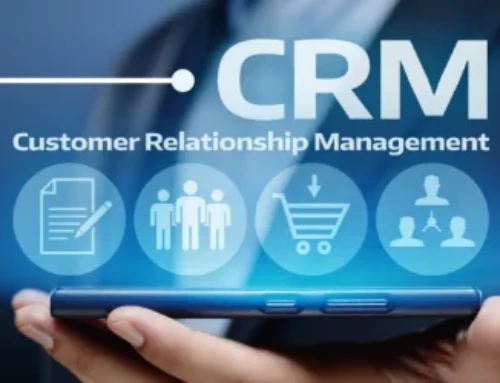
All data, from financial details to proprietary information to personally identifiable information, are essential in enabling businesses to make informed decisions and operate efficiently. However, sensitive data can be as fickle as it is vital. It’s constantly under threat from cyberattacks, natural disasters, and human error. Should any of these threats become a reality, the consequences could mean hefty financial losses, legal penalties, and irreparable reputational damage.
Fortunately, you don’t have to face these risks alone. Managed IT services providers (MSPs) are experts in protecting data and making sure it’s always accessible.
What are managed IT services providers?
MSPs function as an outsourced IT department. For a fixed monthly fee, they handle essential IT administration tasks such as monitoring and maintaining your computing infrastructure, optimizing your networks, troubleshooting technical issues, and providing support to end users.
Due to the rise of cyberthreats and the increasing complexity of IT environments, MSPs’ roles have expanded to include data protection solutions and cybersecurity services. Using their vast expertise and access to advanced data security tools and technologies, MSPs are well equipped to protect your data from various threats.
How do MSPs protect data?
Top MSPs offer several services and solutions to help you develop a robust data protection strategy. These include:
Round-the-clock monitoring
Many MSPs offer 24/7 network monitoring as part of their services. This means they continuously track your computer network for any issues that may affect connectivity and performance. In most cases, these issues are as innocuous as reduced bandwidth due to a spike in internet activity, but they could also be signs of cyberattacks or data breaches.
With MSPs constantly monitoring your network, they can quickly detect anomalies that may indicate potential security threats. These anomalies include suspicious logins, unusual data transfers, and network traffic from unauthorized devices. When MSPs detect these activities, they can take immediate action to mitigate the threats before they cause any significant damage.
Patch management
Installing the latest firmware and software updates can often get tedious for businesses, especially if they have a vast network of apps and devices. The problem is that failing to install these updates can leave your systems vulnerable to data breaches.
An MSP takes the burden of patch management off your shoulders. They keep a record of all the software and devices in your network, complete with details about their configurations and software versions. With this information, they can schedule and deploy updates to keep your systems up-to-date with the latest security patches and close up any potential entry points for cybercriminals.
Cybersecurity solutions
MSPs are also a one-stop-shop for powerful cybersecurity software. They offer firewalls, anti-malware software, email security, mobile device management, end-to-end encryption, data loss prevention, and more.
The best MSPs will even conduct thorough security assessments and vulnerability scans to identify weak spots in your network before recommending cybersecurity solutions. If you decide to implement their data security measures, MSPs can install, configure, and maintain them for you so you don’t need to hire a dedicated IT security team.
Related reading: Answer these 6 questions to rate your business’s data security
Identity and access management
MSPs can prevent data theft by implementing identity and access management (IAM) solutions. These tools control user access to your networks, systems, and applications, denying entry to unauthorized users.
The most popular IAM solutions MSPs offer include:
- Password policies: MSPs can protect your accounts by enforcing password complexity rules, setting up password expiration dates, and regularly updating credentials to prevent unauthorized access. They can also set up a centralized password management system to make it easier for employees to generate and remember all their login information.
- Multifactor authentication (MFA): MSPs can enable MFA on your company accounts to make it even more difficult for hackers to gain unauthorized access.
- Role-based access controls: Access privileges to various data and applications are set and determined based on an employee’s job function or role. This way, only authorized employees can access sensitive data.
- Conditional access: MSPs can set up conditional access rules that control the level of network access granted to users based on specific conditions like location, device type, or time of day. Doing so minimizes the risk of users accessing company data from unsecured devices and networks.
Security awareness training
Although it’s a relatively niche service among MSPs, some providers can facilitate security awareness training for employees. This training educates employees about the latest cybersecurity threats, what actions they should take in case of a data breach, and data sharing policies. By imparting this knowledge, MSPs can help prevent human error from being the cause of costly security incidents within your organization.
Data backup and disaster recovery
Natural disasters, hardware failures, and human error can all lead to data loss. MSPs offer data backup and disaster recovery services to protect your business from the crippling effects of losing critical data.
This involves regularly backing up critical data to secure off-site locations or cloud-based storage platforms. Businesses can choose from different backup schedules and methods, depending on their data storage needs and budget. Should an unforeseen event that causes data loss occur, MSPs can quickly restore the lost information, minimizing downtime and ensuring business continuity.
Compliance management
MSPs assist in compliance management by keeping your data privacy and security practices in line with regulatory requirements such as HIPAA and PCI DSS. By staying compliant, you not only protect your business data but also avoid costly penalties, legal consequences, and reputational damage associated with noncompliance.
Choosing the best MSP for your business data
When selecting an MSP for your business data protection needs, consider the following factors:
- Experience and expertise: Look for an MSP with a proven track record in cybersecurity and data protection, with experience working with businesses similar to yours.
- Compliance credentials: Make sure that the MSP is well versed in regulatory requirements relevant to your industry and location, providing assurance that your data protection practices remain compliant.
- Scalability: A quality MSP can scale their services according to your business needs, accommodating growth and evolving cybersecurity challenges.
- 24/7 support: An MSP that offers round-the-clock support and rapid response times can address emerging threats and minimize downtime.
- Transparent communication: Seek an MSP that maintains open and transparent communication, keeping you informed about security incidents, mitigation strategies, and ongoing cybersecurity efforts.
If you need an experienced MSP that can keep your sensitive data secure, partner with Dynamic Solutions Group. We’re a leading MSP that takes data safety, privacy, and security seriously. Contact us today to learn more about our services and how we can safeguard your business data.





